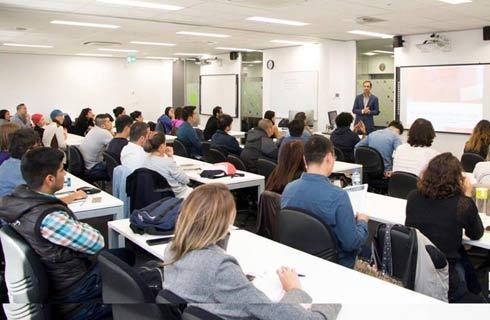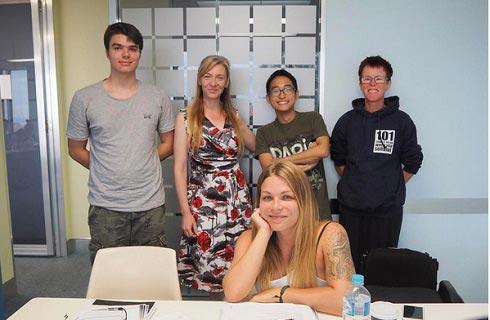国际学生入学条件
General admission requirements
If you meet the minimum entry requirement, you may be selected for one of our courses. However, meeting the minimum requirements doesn’t guarantee that you will be selected.
You may be offered a place once we have assessed:
your formal academic qualifications and results
if you meet any course prerequisites
your compliance with English language requirements
For some courses, an assessment of your personal capabilities and aptitude is also made.
IELTS - 6.0 (no individual band below 6.0)
TOEFL iBT - 64 (no less than 13 in reading, 12 in listening, 18 in speaking, 21 in writing)
展开
IDP—雅思考试联合主办方

雅思考试总分
6.0
- 雅思总分:6
- 托福网考总分:64
- 托福笔试总分:160
- 其他语言考试:PTE Academic - 50 with no communicative skill score less than 50
CRICOS代码:
申请截止日期: 请与IDP联系 以获取详细信息。
课程简介
Civil engineers are concerned with the design, construction and improvement of our built environment. This degree provides you with the technical expertise and management skills needed to plan, design, construct and maintain facilities such as buildings, bridges, dams, water supply systems, waste treatment systems, road and rail networks, and air and sea ports. You will gain comprehensive civil engineering theory as well as hands-on practical work and real-life projects to get you job-ready or use the course as a pathway into research or further learning.<br><br>Students who successfully complete this course will be able to:<br><br>apply coherent and advanced knowledge of the chosen major in engineering in diverse contexts and applications using critical thinking and judgment<br>apply knowledge of research principles and methods to plan and execute a piece of research with some independence, as preparation for research higher degrees<br>apply problem solving, design and decision-making methodologies to identify and provide innovative solutions to complex problems with intellectual independence<br>apply abstraction, mathematics and engineering fundamentals to the analysis, design and operation of a model, using appropriate engineering methods and tools<br>communicate proficiently in professional practice to a variety of audiences, function as an effective member or leader of a diverse team, and use the basic tools and practices of project management within project work<br>demonstrate professionalism, integrity, ethical conduct, professional accountability and an awareness of professional engineering practice in a global and sustainable context<br>reflect on and take responsibility for their own learning and self-management processes, and manage their own time and processes effectively by regularly reviewing of personal performance as a means of managing continuing professional development and lifelong learning.
展开







 预科
预科 奖学金
奖学金 实习机会
实习机会 在校学习
在校学习 跨境学习
跨境学习 校园授课-线上开始
校园授课-线上开始 在线/远程学习
在线/远程学习












 伊迪斯科文大学
伊迪斯科文大学

 利兹大学
利兹大学

 奥克兰大学
奥克兰大学

 奥克兰大学
奥克兰大学

 西澳大利亚州职业技术学院
西澳大利亚州职业技术学院

 伯明翰大学
伯明翰大学









